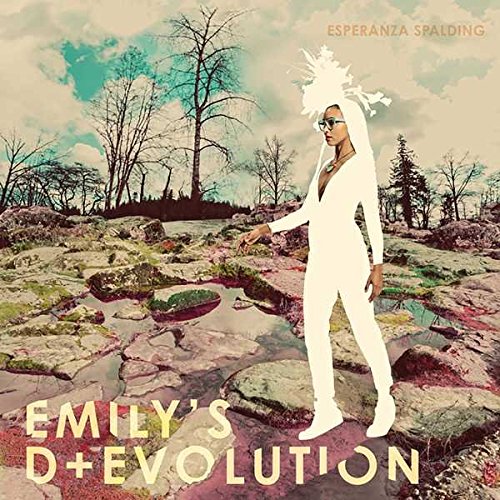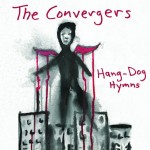Time for a personality switch. Over the course of 4 remarkable albums, the multi-cultural Oregonian jazz pioneer Esperanza Spalding has made the double bass cool, fused jazz cultures together, introduced audiences to various languages and transformed from a scat vocalist to a fully-armoured lyricist and singer-songwriter with a fluctuating range of vocals. Now her identity undergoes metamorphosis. Initially visually: adopting turquoise glasses, wearing colourful clothing, gravitating her hair into braids. After being submerged by the unpredictable sea of her latest record Emily’s D+Evolution, it’s evident that her character has also changed. From self effacing intellect to officious narcissist. Introducing Spalding’s raging alter ego Emily. Named after her middle name, the album’s concept engages within the mind of Spalding’s childhood self before society acceptance kicked in. Devolution being as important to progress as evolution is. Emily could be seen as dramatic and impulsive, the angel and devil on Spalding’s shoulders, preoccupied by the magic of theatre and poetry.
Emily is a powerful spirit that comes across as a gender warrior and fearless force ready to take on the world. Criticizing sexual discrimination and life’s default order on ‘Judas’- a song that features many references to literature and the Bible. The former inspiration continues on the class and racism critique ‘Ebony and Ivy’, attributing to a political book by Craig Steven Wilder. Additionally, Emily acts rebellious with lines such as “I wanna the break the rules with you,” on the barrier-jumping ‘Funk The Fear’. Yet what’s interesting about Emily’s persona is that she can also come across as over-confident to the point of vanity. She screams like a tantrum-erupting witch: “I want the world, give it to me now,” on the overwhelming and theatrical ‘I Want It Now’ – imagine Kate Bush singing The Sound of Music’s My Favourite Things adapted by Baz Luhrman. There’s a certain attention-seeking vainness also on the manipulative ‘Farewell Dolly’ (“I’m exceptionally pretty, I can testify.”) and the track ‘Good Lava’ with the line “watch this pretty girl flow” but the clever volcano-metaphors promise a fantastic live background set hinted at by it’s a psychedelic music video.
Spalding bravely substitutes the jazz genre for the style of progressive rock, as its complex time signatures, jagged structures and theatrical nature fit suitably with the album’s psyche. Although the songs have a modest length. Being a composer and a maestro of instruments and already known for already for her detour from common song patterns, the transition was always in safe hands.
One of the main components that make this album so successful is Esperanza Spalding’s unfathomable vocal skills. Once rigidly synchronized completely with the keys of her bass, they are now much freer to roam. Within moments, it changes from elegant Christmas ear candy to tough defensive, vintage girl group barbershop, fragile innocence, Danielle Haim-pop rock, accented attitude soul and experimenting with fast speech like a Maja Ratjke piece. Some credit must go to producer Tony Visconti, who has helped bring out Esperanza Spalding’s multi-dimensional presence like he did throughout Bowie’s career.




